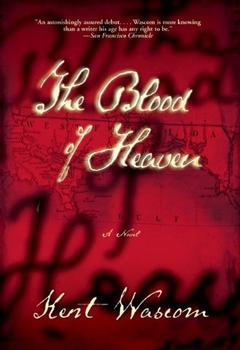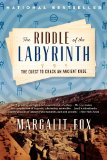Summary | Excerpt | Reviews | Read-Alikes | Genres & Themes | Author Bio

Glory, Revolution, Betrayal, and the Real Count of Monte Cristo
by Tom ReissHere is the remarkable true story of the real Count of Monte Cristo – a stunning feat of historical sleuthing that brings to life the forgotten hero.
Here is the remarkable true story of the real Count of Monte Cristo – a stunning feat of historical sleuthing that brings to life the forgotten hero who inspired such classics as The Count of Monte Cristo and The Three Musketeers.
The real-life protagonist of The Black Count, General Alex Dumas, is a man almost unknown today yet with a story that is strikingly familiar, because his son, the novelist Alexandre Dumas, used it to create some of the best loved heroes of literature.
Yet, hidden behind these swashbuckling adventures was an even more incredible secret: the real hero was the son of a black slave -- who rose higher in the white world than any man of his race would before our own time.
Born in Saint-Domingue (now Haiti), Alex Dumas was briefly sold into bondage but made his way to Paris where he was schooled as a sword-fighting member of the French aristocracy. Enlisting as a private, he rose to command armies at the height of the Revolution, in an audacious campaign across Europe and the Middle East – until he met an implacable enemy he could not defeat.
The Black Count is simultaneously a riveting adventure story, a lushly textured evocation of 18th-century France, and a window into the modern world's first multi-racial society. But it is also a heartbreaking story of the enduring bonds of love between a father and son.
Tom Reiss's Pulitzer Prize-winning biography, The Black Count, recounts the life and times of General Thomas-Alexandre Dumas (1762-1806), father of author Alexander Dumas and the inspiration behind the younger Dumas' novel The Count of Monte Cristo.
Reiss's subject is a compelling one; Dumas was born in Saint-Domingue (now Haiti) to a black African slave woman and her white aristocratic owner. He rose from this humble origin - primarily on his own merits - to become the highest ranking person of color of all time in a continental European army (to this day). His swash-buckling exploits almost defy belief, rivaling those of the protagonists created by his son. But although this man was clearly larger-than-life, Reiss's exquisitely detailed research leaves no doubt that his reputation as a hero was deserved.
In addition to informing his readers about Dumas' life, the author covers quite a lot of history. The book contains fascinating information about slavery and racism in France; the pre-Revolution aristocratic system; the French Revolution itself; and the rise of Napoleon Bonaparte, including his Egyptian campaign.
I generally avoid non-fiction books and dislike biographies in particular, feeling that they're too dry for my tastes. This one is a huge exception though, and is in fact my favorite book of the year. It may seem trite to say a book reads like a novel, but, well, this one does. I never once thought it dragged or that I didn't care about the material being presented, and I was always eager to return to it after having to put it down. Dumas was an intriguing character who lived during a rapidly changing period in history, and Reiss's prose vividly conveys both the man and the time. I can't recommend it highly enough.

If you liked The Black Count, try these:

by Kent Wascom
Published 2014
A remarkable portrait of a young man seizing his place in a violent new world, a moving love story, and a vivid tale of ambition and political machinations that brilliantly captures the energy and wildness of a young America where anything was possible.

by Margalit Fox
Published 2014
The Riddle of the Labyrinth: The Quest to Crack an Ancient Code tells one of the most intriguing stories in the history of language, masterfully blending history, linguistics, and cryptology with an elegantly wrought narrative.